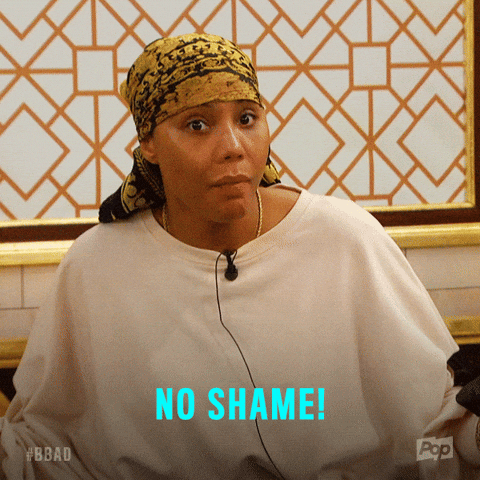How Women Over 50 Can Support a Partner with Erectile Dysfunction
(Note: a version of this blog was previously published on Sixty and Me.)
When you think about dating, one of your major concerns might be about sex.
In fact, sex is what differentiates a long-term love partner from just another friend. As a dating coach, I want to give you the best chance at healthy, lasting love, and that means giving you the lowdown on the most common sex issues older couples face.
Let’s talk about something many couples over 50 struggle with—but almost no one wants to bring up at brunch: your partner’s erectile dysfunction.
Armed with the intel on how to handle ED, you'll be a more confident dater and sex partner, and because it's something so many men worry about, you'll become an instantly more attractive potential partner to the fabulous men out there who are looking for something serious and romantic!
Yep, we’re going there. Because ED isn’t just a physical issue—it’s a relationship issue. And while it’s a very common condition, especially for older men, most of us aren’t given the tools to talk about it, let alone navigate it with grace, humor, and compassion.
So here’s your permission slip: You are allowed to want a thriving sex life, emotional connection, and physical intimacy—even if the person you're with is dealing with erection problems.
I am going to talk about the causes of ED, the best ways to help, and how to protect your heart, his heart, and both of your libidos, while staying in the game.
Understanding the Causes of ED: It’s Not Just in His Head (Yuk Yuk)
When a man starts experiencing ED, it’s usually not just one thing. Blood flow plays a huge role, and anything that affects it—like high blood pressure, heart disease, or other health conditions—can be part of the problem.
Low testosterone? Check. Side effects from medications? Absolutely. A history of prostate cancer treatment? Could be. Poor lifestyle habits? Yep, those count too. And don’t even get me started on the mental health issues like stress, anxiety, and low self-esteem.
ED is often a mash-up of physical and emotional issues, and that makes it an issue for both of you. Yay! Good thing we women sure do love to help! But when it comes to your sex life, there are some kinds of help that helping all about and some kinds of help we all could do without.
With my guidance, you're going to get smarter, softer, and a little more strategic about this very common issue.
The First Step: Open Communication and Zero Shame
You get softer, he gets harder! Oh, I crack myself up! The puntential of this topic is endless! But seriously folks...
The only way to start fixing this issue is by making it safe to talk about! That’s the first step. Not blaming. Not hinting. Not joking.
Try something like: “Hey, I want to talk about a historically awkward topic. I care about you, and I want us to feel close in every way, so I am bringing it up.”
What you’re doing here is creating a space for honest conversation without making him feel broken. Most men were not raised to talk about feelings—especially not about sexual dysfunction. Your job isn’t to solve it, it’s to make it safe for him to want to solve it.
After you set the stage for a loving, patient conversation, you'll just state, with no judgment, what you've observed and ask what he thinks about it all.
HOT TIP: Don't go straight for how he feels! Ask what he thinks about what's happening. That's a much easier question for him to answer as a man. From what he tells you, you may be able to guess at and even give him language help about what he might feel. In this way, you get even closer, which then reduces anxiety and ameliorates some of the mental aspects of the problem.
Encourage Medical Help: ED Treatment Isn’t One-Size-Fits-All
Depending on how much self-knowledge and research your partner has already undertaken, he may need more input and advice. Sometimes the issue won't fix itself with just a conversation and more emotional intimacy.
If appropriate, encourage your partner to get a physical exam and talk to a healthcare provider to explore some of the potential causes that are treatable and find out more about ED treatment options.
The visit will likely include a blood test, reviewing medical history, or even trying oral medications. Some men do well with a vacuum pump. Others may explore penile implants or alternative therapies. There are other kinds of experts, too. A sex therapist or licensed clinical psychologist can help with performance pressure and emotional concerns.
If he’s feeling shy, offer to go with him. It might sound small, but your support could be the difference between him getting help—or staying stuck.
Healthy Lifestyle Changes = Healthier Erections
ED isn’t just about what’s happening in the bedroom. It’s often about what’s happening outside of it. That means now is a good time to rally for healthy lifestyle changes.
Start moving together. A little physical activity goes a long way. Make small shifts toward a healthier diet. Cut back on alcohol (too much alcohol is a known libido killer). If he smokes, support him in quitting. Aim for a healthy weight. These are all small choices with a big impact on blood vessels and sexual function.
You’ll both feel better and be more connected overall. That’s a win-win.
Try New Ways to Reconnect Physically
If you’re hyper-focused on penetration, you’re setting yourself up for frustration. Sex is more than intercourse. It’s about connection, touch, and presence. And there are so many ways for you both to feel good without an erection. For one thing, a myriad of objects (including the obvious choice of a dildo) can be used for penetration besides a penis. Secondly, men have been known to experience great arousal and even orgasm without an erection.
Sadly we are taught to think of sex as vaginal penetration by an erect penis and it is so so much more than that. If you can't have fun without an erection in the picture, it's a failure of imagination. Or being uptight about trying new things. This course helped me.
Explore sex toys together. Try massage. Experiment with sensate focus (that’s a fancy term for exploring touch without performance pressure). Talk about your fantasies. Reclaim your sexual relationship as a space for curiosity and creativity—not performance.
The best way to get out of your head and back into your body is to play. Remember play? More inspiration here.
When It’s Time to Get Professional Help (And Why That’s a Power Move)
If things aren’t improving—or if the emotional toll is growing—it’s time to loop in a professional. A sex therapist can help you both navigate the deeper issues, from mental health concerns to relationship problems.
There’s no shame in asking for help. In fact, the real shame is suffering in silence. If you’re feeling disconnected or if he’s pulling away emotionally, this might be about more than ED. It might be a deeper form of avoidance behavior that needs support.
ED isn’t just a guy’s problem. It’s a couple’s challenge. And you can’t fix what you’re unwilling to face together.
ED Doesn’t End Your Sex Life—It Reinvents It
This chapter doesn’t have to be the end of your story—it can be a pivot into something more real. More honest. More satisfying. Yes, even more sexy.
When you let go of the idea that a “real” sexual encounter has to look a certain way, you free yourselves to explore what feels good now. Your sex life in your 50s, 60s, and beyond doesn’t have to look like it did in your 30s. And honestly? That might be the best news yet.
ED is not a life sentence. It’s a message. From his body. From your relationship. From life. And it’s saying: slow down, get honest, and connect for real.
You are not alone. I'm here.
If this didn't answer all of your Sex Questions, there's more here.
FAQs: How to Navigate Your Partner’s Erectile Dysfunction
1. What’s the first step if my partner has erection problems?
Start with a loving conversation and encourage a visit to a healthcare professional for a physical exam and blood work. You need to know what you’re working with.
2. Are ED medications always the best treatment?
Not necessarily. Some men respond better to vacuum pumps, implants, or counseling. The best treatment depends on the underlying cause of ED.
3. What do I say if my partner feels ashamed?
Tell him this is common and not a reflection of his worth. The goal is connection, not performance. Remind him he’s still the man you want.
4. Can mental health issues really cause ED?
Yes! Stress, anxiety, depression, and past trauma are all common contributors. Sometimes, a psychological block is the biggest roadblock.
5. Can our sex life still thrive if penetration isn’t on the table?
Absolutely. There are many ways to experience intimacy—physical, emotional, sensual. And often, exploring these new ways brings you closer than ever.
Love,







